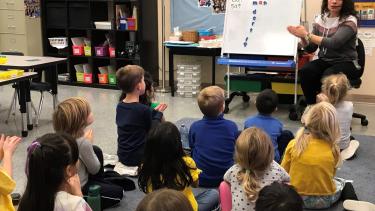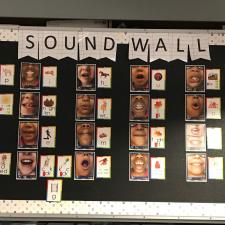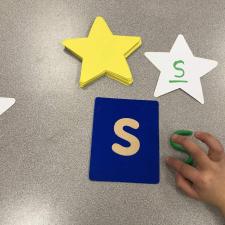
Early Literacy
Noticing a shift in literacy instruction across the district? Wonder what is going on in the classroom down the hall?
You may have noticed that literacy instruction is an extremely hot topic right now. A great deal of research has come out recently regarding the importance of explicit instruction of foundational literacy skills. Across the district, teachers have been adding to their literacy instruction toolboxes by attending a series of literacy workshops, participating in book studies, listening to podcasts, watching webinars, and trying out new strategies to ensure students have the foundational skills needed for word recognition.
Phonological Awareness and Phonemic Awareness addresses two components of the foundational Word Recognition skills needed for students to be able to read words. Phonological awareness is the ability to recognize and manipulate the spoken parts of words and sentences. This includes identifying words in sentences, rhyming words, syllables in words and alliteration. Phonemic awareness is what enables you to hear and manipulate the smallest units of speech sounds. This is the ability to play with the sounds within words, blending sounds, deleting sounds, changing sounds and segmenting.
Heggerty is one tool/resource that is now found in many primary classrooms around the district. Teachers are using this resource to increase students' phonemic and phonological awareness in a highly engaging way. The lessons are quick and entirely oral.
Another tool you may have noticed popping up in many classrooms is a Sound Wall. A Sound Wall differs from a traditional word wall, in that students and teachers are attending to the sounds in a word, as opposed to the letters used to spell a word. This shift allows students to really attend to what their voice box, mouth, tongue, teeth, and airflow are doing while creating a sound. This knowledge of letter sounds helps students to be successful with reading and writing activities.
A Structured Literacy approach emphasizes highly explicit and systematic teaching of all important components of literacy. These components include both foundational skills (e.g., phonological awareness, letter-sound relationships, syllable patterns, morphemes, spelling, vocabulary development) and higher-level literacy skills (e.g., reading comprehension, written expression, verbal reasoning, background, and content knowledge)
As always, teachers in AbbySchools are trying new things to better improve their student's literacy learning in engaging and culturally responsive ways, be it word recognition skills, bridging processes, or language comprehension skills.
Two articles to learn more:
If you would like to learn more about some of the shifts you are seeing in classrooms, we suggest you talk to your colleagues about what they are doing and why, but also to connect with Tyra Lasko (tyra.lasko@abbyschools.ca) or Maria Limpright (maria.limpright@abbyschools.ca), our Early Learning Curriculum Helping Teachers.
DONNA WRIGHT, DISTRICT PRINCIPAL
TYRA LASKO, HELPING TEACHER
MARIA LIMPRIGHT, HELPING TEACHER
Early Learning, Curriculum Department

